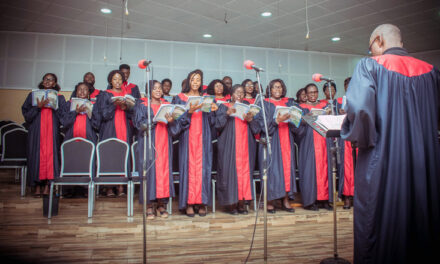Connecting For Good
Tena tātou katoa e te iwi mīhana… (Greetings to all the people in mission),
The whakataukī (Māori proverb) for this post is: “Mā te kino, ka kitea te pai.” [Through evil, one is able to see what is good]. In his book, “Tikanga Māori: Living by Māori Values“, Māori scholar Hirini Moko Mead opens a discussion on Māori behavioural values with this whakataukī and explains,
This indicates that good behaviour is often defined by its opposites. One learns how to maintain balance in one’s life by avoiding behaviour that is known to trigger reprisals or rebukes.
For Māori, esteem in the community (honour) is highly prized. Communal esteem of one’s giftedness, commonly known as ‘mana’, is like bankable currency in our collectivist societies. Mana is an easily misunderstood concept, but a sense of mana runs deep within the psyche of Māori and losing mana, or having your mana dishonoured, is to be avoided at all costs. The way to increase it and maintain it is to invest it by acting in ways that benefit the community. Scorn for behaviours that disrupt or dishonour the community are to be avoided—and you soon learn what they are!
From misbehaviour to psychopathy, evil in all its forms serves a purpose as a contrasting backdrop to good, as darkness does for light. Rather than debate degrees of evil and rank moral failures from worst to not-so-bad, I refer here to evil in its broader concept. My working definition for it is related to my definition of sin, “That which, in any given context, is relationally destructive.” Where sin is a force towards relationship destruction, evil is the act influenced by the force.
Evil: “That which, in any given context, is relationally destructive.” Where sin is a force towards relationship destruction, evil is the act influenced by the force.
Sociological rules (laws/morality) and consequences (punishment) may help maintain a certain degree of balance and restrain evil extremes, but, as Paul testified in Romans 7, the sin within is a beast not so easily tamed. “But, thanks be to God through Jesus Christ our Lord!” (Romans 7:25). Where external laws and societal expectations lack the ability to completely restrain an impulse toward evil, in Romans 8 Paul declares that the Holy Spirit, (exclusively available to those who pledge their allegiance to and follow Christ) works internally with a power that frees us from an obligation to obey the destructive sin impulse that is common to all humans. This spiritual wrestling match ceases only after our death (Rom 8:23). In the meantime, we mature as we persevere, choice by choice, with one another, against the impulse, resisting its influence by the power of God, the Holy Spirit within us.
When I read of Jesus’ encounters with people (and their sin) I see someone who could perceive God’s good image in another person and hold them to that standard—more often than not, freeing them from some bondage so they could do so. “Go, and sin no more” (John 8:11) are such liberating words.
Resisting sin and maturing into our imago Dei is not, and was never meant to be, a solo exercise.
But resisting sin and maturing into our imago Dei is not, and was never meant to be, a solo exercise. In Jeremiah 17:9 the Lord makes it clear that the human heart is deceitful above all things, and in v10 He warns that He examines our secret motives. That’s not to suggest we are totally and irreversibly depraved, but that the good image of God in us is corrupted and in need of a corrective. However, when we receive the gift of the Holy Spirit it does not deal with the sin issue overnight. Transformation into the person God knows us to be is a process, and we can override and interrupt that process at any time. Although it sounds theologically unorthodox, in some ways the Holy Spirit isn’t enough. The Holy Spirit works in synergy with us, and in synergy with the covenantal communities we belong to.
To suggest that we can grow spiritually into the likeness of Christ and the full image of God by ourselves is the heresy. We can too easily deceive ourselves and others when we are isolated, but it’s much harder to maintain a facade in a community. It is no accident that when John writes, “they can’t keep on sinning, because they are children of God” (1 John 3:9 (NLT), that it’s in the context of loving one another as we participate in God’s family, a covenantal community. We need others around us to help us mature. We need to keep ourselves open to learning opportunities from those who see God differently from us. Exposure to difference within our global family in-Christ, can reveal sin we have never seen in ourselves and help keep us from doing evil, however inadvertently. God’s people help God’s people to grow.
It can really rock our world when the secret life of a fellow believer we respect is revealed to be deceptive and abusive.
But, getting back to our whakataukī, do we really need evil to define good? I don’t think so, but we can’t avoid it and, in the scheme of things, evil certainly reveals the horror of unrestrained sin. Most of us expect to encounter it outside of our in-Christ community, but it can really rock our world when the secret life of a fellow believer we respect is revealed to be deceptive and abusive. How are we to reconcile such expressions of evil? Do we rank their destructive behaviours against ours and condemn them? Do we look at ourselves and think, given similar circumstances that could be me? Do we build larger edifices (rules, regulations, punishments) to protect ourselves from being tempted similarly?
Firstly, I have to emphasize that our primary response should always be compassionate concern for the victims. The perpetrator must face the just consequences of their actions, but the sinned against have a long road of healing ahead of them and deserve all the support they can get. They need to be heard, understood and enabled to process the trauma well in order to grow through it.
With regard to other common reactions, I loathe the response, “There, but for the grace of God go I”. For a start, it suggests God’s grace wasn’t sufficient for the abuser—which is false. God’s grace is always sufficient, but as I noted with the Holy Spirit (the source of grace), grace works synergistically with those of us in-Christ. Secondly, if you’re struggling with relationally abusive tendencies, God’s common grace has provided our era with professional care—get help, now.
We will likely all know of high-flying Christian leaders who have crashed after exhibiting antisocial personality disorders (psychopathy) in their predatory planning, grooming and narrative-creating that enabled them to seek out and conduct abusive relationships. If confronted, they can be masters at placing themselves in the centre of their narrative as the victim (narcissism). The level of deception required to carry out manipulative abuse proves Jeremiah 17:9’s prophecy, but stopping this from happening is not a matter of policy (accountability systems, regular device checks, inquisitions), buddy-policing (accountability partners), or avoidance of sources of ‘temptation’ that restricts others from full participation in ministry (such as the so called “Billy Graham Rule” does). All of these measures are based on continued individualistic isolation. Barriers, checks and balances, and even self disclosure in one-on-one relationships, can be easily dodged by those with a will to do so. After all, psychopaths are master deceivers. No amount of “accountability” will out them.
Psychopaths cannot form genuine emotional attachments to others.
What psychopaths cannot do, however, is form genuine emotional attachments to others—their relationships are superficial. This can be easily missed with casual or occasional contact, such as work or small group meetings. However, in an intimate community, such as the one the New Testament envisages, emotional detachment is much harder to hide. Probing from others comes more naturally with intimacy over time, and our true nature becomes exposed. The kind of covenantal community imagined by the New Testament writers should be a safe place to share temptations and find those who will hold you to the standard of your imago Dei. Sadly, we do not have many great examples of such communities today. Most of us have heard of communal attempts that have failed. That should not keep us from aspiring to the ideal though. It’s not as simple sitting around and singing kumbaya (although that can’t hurt), but it is quite clearly the biblical expectation in the New Testament and therefore a present possibility (however difficult to achieve), as we hold it as our coming eschatological reality.
We can better defend against abusers and evil together, connecting for good. After all, in his John 17 prayer, Jesus said that only this type of oneness will lead to the world believing and knowing that the Father sent the Son. This level of intimate covenantal community is the only strategy he gave us to fulfill the mission of God. Our witness is proven by this level of togetherness. So, we’re dreaming if we think we can go it alone. No. We must go together, for this is how we, #stayonmission.
Whakapaingia te Atua, to tatou kaiunga ki te ao whanui (May we be blessed as God sends us into the wider world),
Jay







